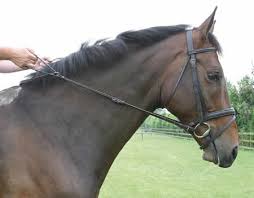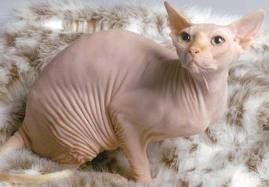Today we're tackling a set of fraternal triplets of language, the homophones rain, rein and reign, as requested by Tricia O'Brien at Talespinning. Once again, I'll provide a definition, examples and mnemonic tricks to help you keep them straight.
rain (n) - watery precipitation; water that has fallen from clouds, rainwater.
rain (v, intrans) rained, raining - to fall as water from clouds; to fall like rain; to send down rain
rain (v., trans) rained, raining - to pour or administer abundantly
Examples:
Hugh never understood that Adele song. How can rain be set on fire? Is it acid rain?
It rained all day, so the hike was postponed.
Jag rained blows on his opponent.
Denise loves the disco song "It's Raining Men."
Mnemonics for rain with an A:
The rain in Spain falls mainly on the plain. (Thank you, Henry Higgins.)
Air pollution is a cause of acid rain.
 rein (n) - strap on a horse's bridle attached to the bit that allows a rider to control and steer the animal; restraining influence.
rein (n) - strap on a horse's bridle attached to the bit that allows a rider to control and steer the animal; restraining influence.
rein (v, trans.) reined, reining - to control or steer, as with a bit and rein; sometimes used with in.
Examples:
Pull the left rein to turn your pony left.
Jed kept a tight rein on the meeting.
Stacy was given free rein over the party planning. She could do whatever she liked.
Chloe, you need to rein in your campers. They're making a huge mess in arts and crafts.
The expression "free rein" specifically means "without guidance" and "full rein" means "without control." They are metaphors based on the practices of letting a horse instinctively find a trail or run at top speed; the rider leaves the reins loose and long (versus tight and short) in either instance, not steering or slowing the horse's free movement.
Mnemonics for rein with an E:
To ride east, Eve and Ella rein left.
Free rein: freedom and speed, whee!
 reign (v, intrans.) reigned, reigning - to exercise dominion or rule, like a monarch; exert dominion, sway or influence; to be predominant or prevalent.
reign (v, intrans.) reigned, reigning - to exercise dominion or rule, like a monarch; exert dominion, sway or influence; to be predominant or prevalent.
reign (n.) royal authority, ruling power, dominion; the period of rule or dominion.
Examples:
Elizabeth II celebrated her Diamond Jubilee in honor of reigning for 60 years.
King Xerxes reigned from 519 to 465 BC.
Jessamyn reigns over the entire school like an evil queen.
Chaos reigns when those kids are left with a sitter.
Rebels continued their reign of terror for five months.
Reign of Fire was a film about dragons ruling the earth.
Mnemonic for reign with a G:
Gorgeous George reigns the giggling girls.
Increasingly, I've seen people use the expression "free reign," which I'm not entirely certain is a homophone error so much as a new expression with a slightly different meaning than "free rein." It is usually used in contexts of someone exerting total control or behaving like a dictator and taking no direction from anyone.
image credits: rain - http://guardian.co.uk ; rein - http://equiword.net; reign - http://royal-splendor.blogspot.com.
Do these distinctions help? What other homonyms trip you up?
rain (n) - watery precipitation; water that has fallen from clouds, rainwater.
rain (v, intrans) rained, raining - to fall as water from clouds; to fall like rain; to send down rain
rain (v., trans) rained, raining - to pour or administer abundantly
Examples:
Hugh never understood that Adele song. How can rain be set on fire? Is it acid rain?
It rained all day, so the hike was postponed.
Jag rained blows on his opponent.
Denise loves the disco song "It's Raining Men."
Mnemonics for rain with an A:
The rain in Spain falls mainly on the plain. (Thank you, Henry Higgins.)
Air pollution is a cause of acid rain.
(with free or full) opportunity for unhampered activity or use.
rein (v, trans.) reined, reining - to control or steer, as with a bit and rein; sometimes used with in.
Examples:
Pull the left rein to turn your pony left.
Jed kept a tight rein on the meeting.
Stacy was given free rein over the party planning. She could do whatever she liked.
Chloe, you need to rein in your campers. They're making a huge mess in arts and crafts.
The expression "free rein" specifically means "without guidance" and "full rein" means "without control." They are metaphors based on the practices of letting a horse instinctively find a trail or run at top speed; the rider leaves the reins loose and long (versus tight and short) in either instance, not steering or slowing the horse's free movement.
Mnemonics for rein with an E:
To ride east, Eve and Ella rein left.
Free rein: freedom and speed, whee!
 reign (v, intrans.) reigned, reigning - to exercise dominion or rule, like a monarch; exert dominion, sway or influence; to be predominant or prevalent.
reign (v, intrans.) reigned, reigning - to exercise dominion or rule, like a monarch; exert dominion, sway or influence; to be predominant or prevalent.Examples:
Elizabeth II celebrated her Diamond Jubilee in honor of reigning for 60 years.
King Xerxes reigned from 519 to 465 BC.
Jessamyn reigns over the entire school like an evil queen.
Chaos reigns when those kids are left with a sitter.
Rebels continued their reign of terror for five months.
Reign of Fire was a film about dragons ruling the earth.
Mnemonic for reign with a G:
Gorgeous George reigns the giggling girls.
Increasingly, I've seen people use the expression "free reign," which I'm not entirely certain is a homophone error so much as a new expression with a slightly different meaning than "free rein." It is usually used in contexts of someone exerting total control or behaving like a dictator and taking no direction from anyone.
image credits: rain - http://guardian.co.uk ; rein - http://equiword.net; reign - http://royal-splendor.blogspot.com.
Do these distinctions help? What other homonyms trip you up?
























